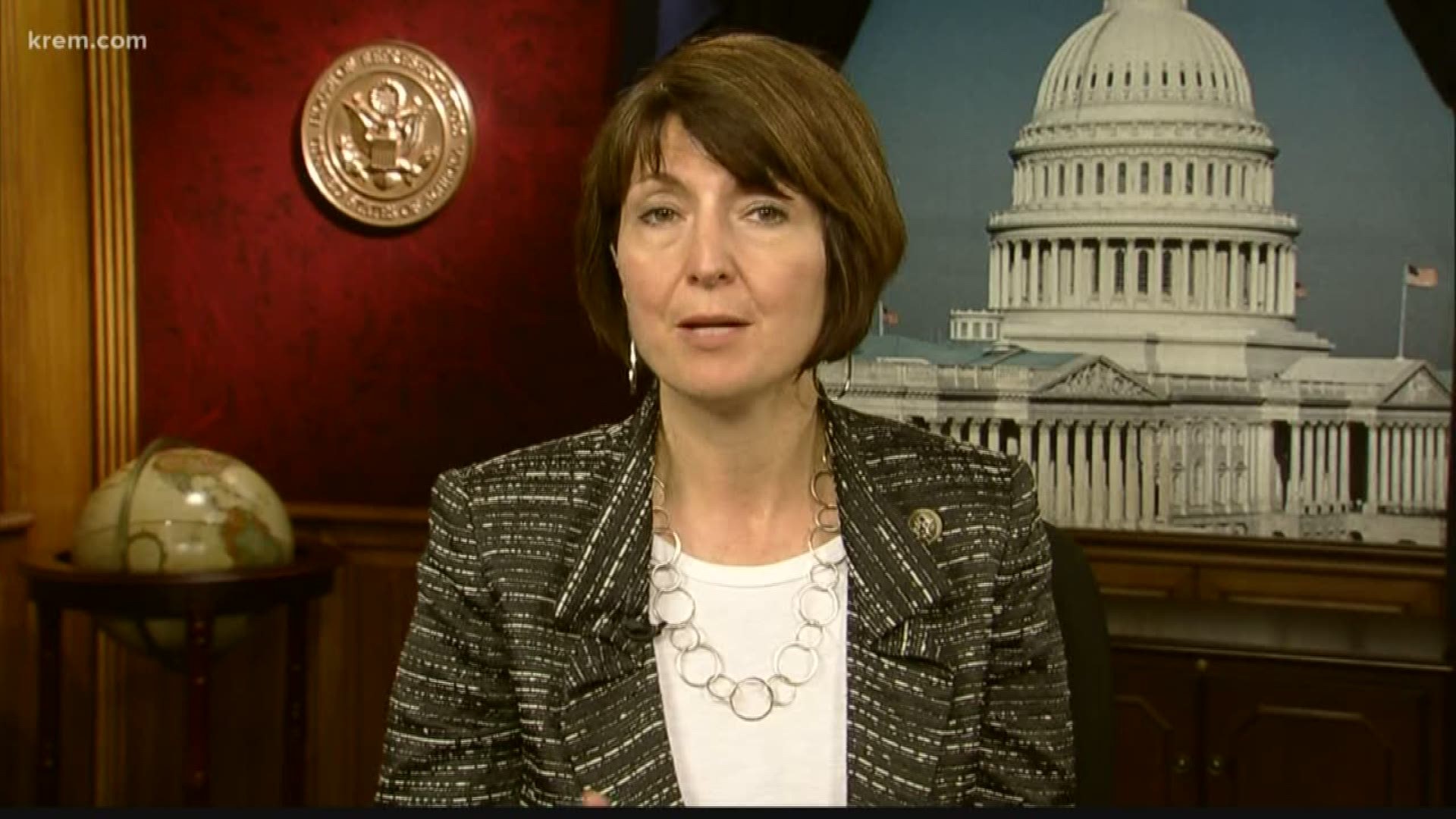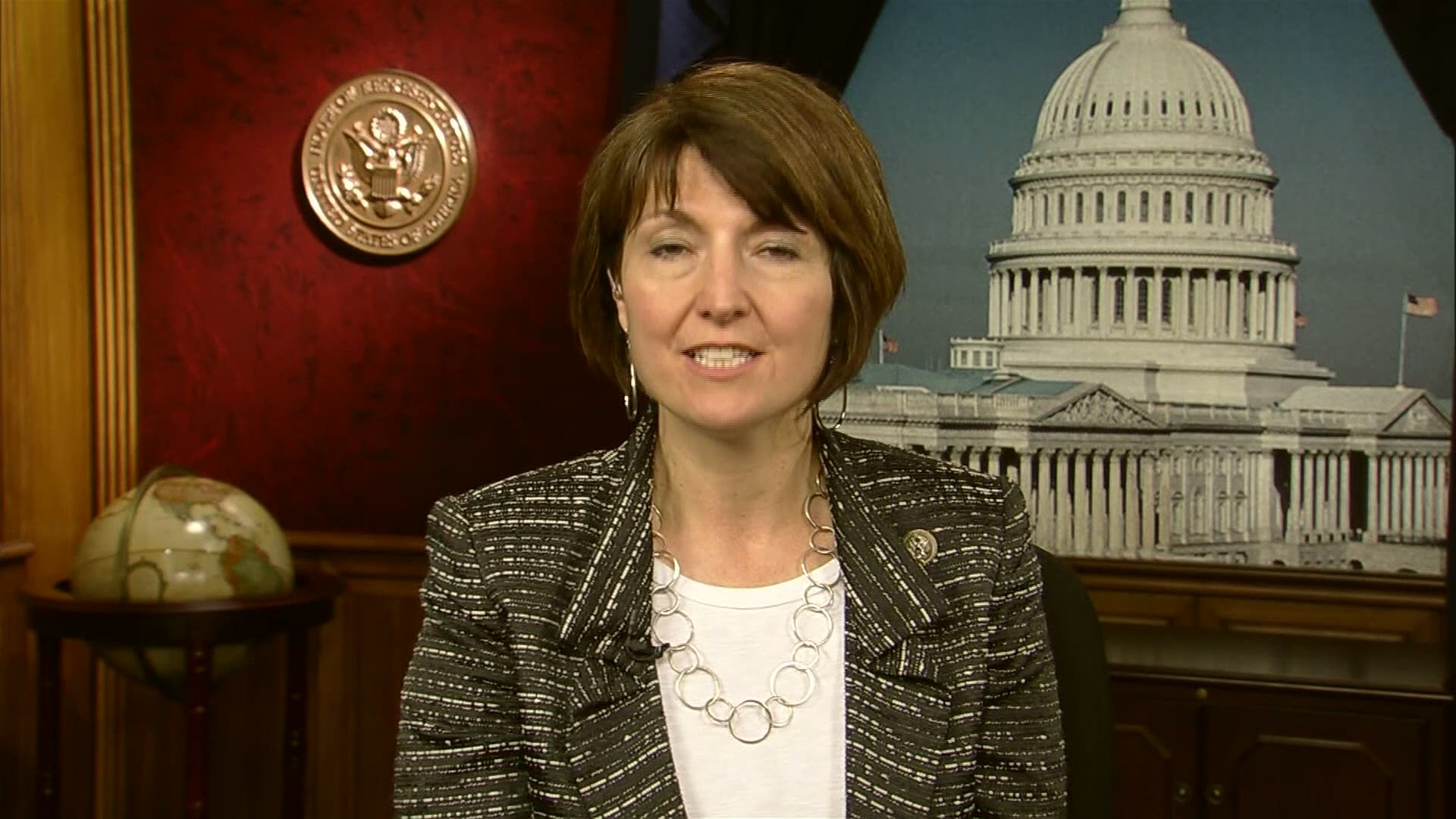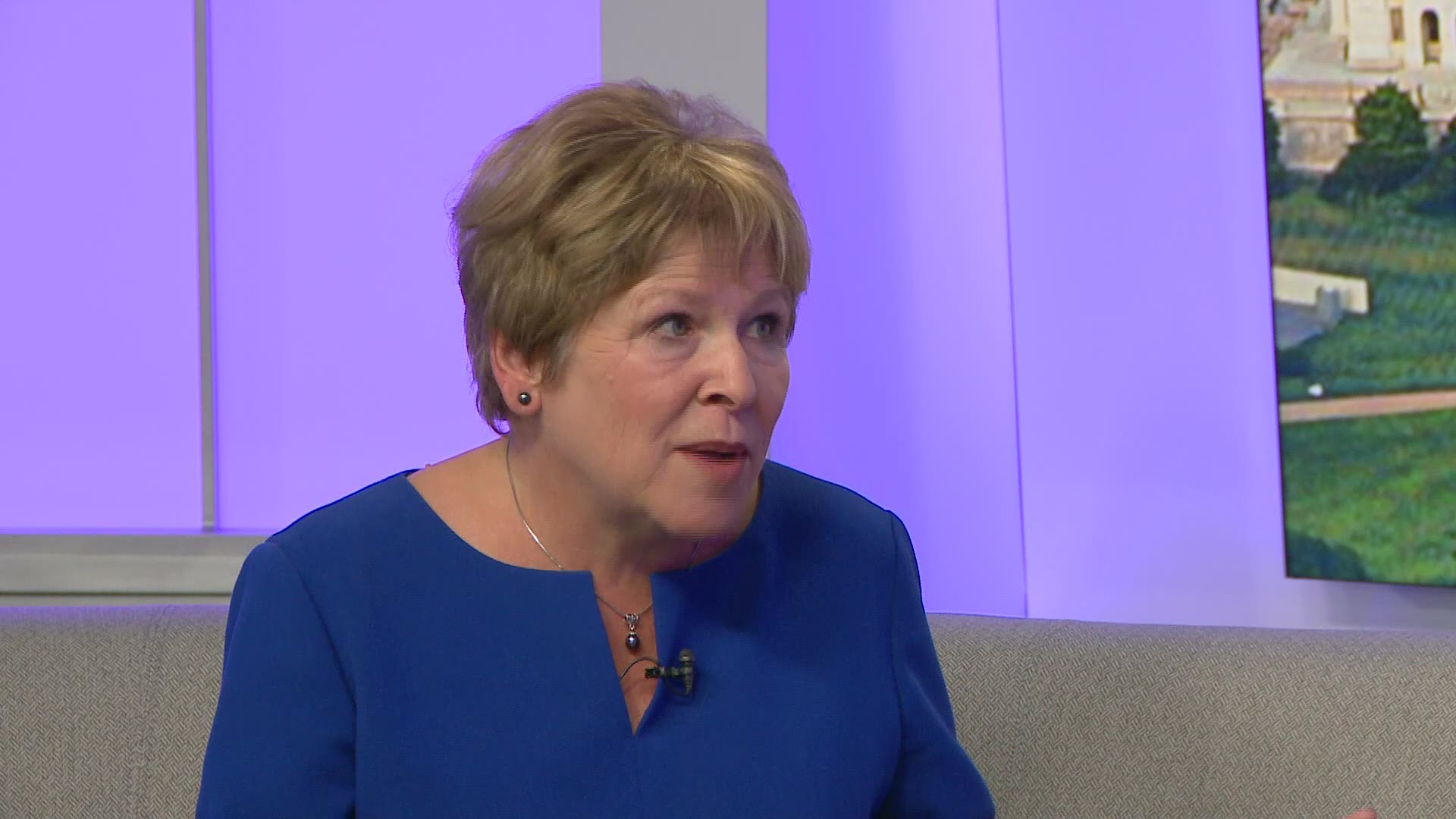SPOKANE, Wash. -- The race for Eastern Washington's 5th district seat is more competitive than it has been in over a decade.
Representative Cathy McMorris Rodgers is fighting to hang on for an 8th term, while former state Senator Lisa Brown pushes to take that seat for herself. One ad in particular showed a clip of KREM 2 news and 2 On Your Side Investigator Whitney Ward.
First things first: Yes, McMorris Rodgers can use clips from our newscasts in her ads. It does not mean that KREM 2, or Whitney Ward, endorses her in any way. The clips in the ad are from a story from November 2017 when KREM 2 questioned the congresswoman about VA programs. Remember, it is our job to question those in power, then let you hear their answers and decide for yourself.
KREM 2 asked Representative McMorris Rodgers about her record when it comes to veterans.
Here's what she had to say.
Cathy McMorris Rodgers: Whitney, it's good to be with you, and I appreciated you coming out when Dr. Rowe was in town. He's the chairman of the VA Committee, and I know there was an interview that day with KREM. We're helping veterans all the time, with different claims, disability rating, getting appointments. It's not the way that it should work, but we're here to help. So, for the Spokane VA, I am working right now to get it designated as a teaching hospital, so that residencies can be done at the Spokane VA and help meet an important need for doctors.
Whitney Ward: What kind of timeline are you looking at to make that a reality?
CMR: Just a few weeks ago, we had a community meeting with both the WSU Medical School, and the UW/Gonzaga Medical School, to be talking about, 'What do those next steps look like? What is it going to take?' There are slots currently that are available to the Spokane VA residency program. There's 15 current slots. And I've also supported legislation that provided for an additional 3,000 residency slots across the country that I would like the Spokane VA be able to access. I was very disheartened a couple of years ago when they shut down the Emergency Room, because they couldn't recruit doctors. They didn't have enough doctors to keep the ER open. And I've been working very closely with them. And I'm very excited that they have announced they are going to open an urgent care 24/7 at the Spokane VA which will ensure that a veteran can always go there.
WW: That was actually going to be my next question, talking about that 24-hour Urgent Care at the Spokane VA. We've heard a lot about that, but we have yet to hear about when it's actually going to happen. Do you have any indication of when veterans can expect that?
CMR: They told me it was going to be this year. So, I will have to get that update on when that is.
WW: And you've talked a little bit about the mental health crisis. It has been a big issue for veterans, everywhere, including here in Eastern Washington. So how are you actively working to make sure that they don't slip through the cracks?
CMR: The good news with the teaching health center is that there are residencies for psychiatry that are a part of the teaching health center. And I just led the effort in Congress to get the teaching health center expanded and the funding for the residency program doubled. That is a way that we can make sure we have the doctors to provide the care, and in this case, the important mental health care that our veterans need.
WW: What about the Veterans Choice program? That is something you have talked about in the past with great challenges, when it comes to making it work. So, how can we improve it so that it does work better for veterans here in Eastern Washington?
CMR: The VA Mission Act that the President just signed, is extending the VA Choice Program. And it also addresses some of the frustrations. So, this legislation is intended to make it a smoother transition for the veteran that lives in the rural areas, has to travel a long distance to actually go to a VA medical center, and wants to seek that care in the community. We've been working to get the Emergency Room open 24-7. I've led on legislation for self-scheduling.
So that's what the Congresswoman has to say. We also wanted to give her Democratic opponent a chance to speak as well. KREM 2 believes very strongly in giving her main contender a chance to address the same issues, since the two are sparring against each other on campaign ads. So here is what Congressional candidate, Lisa Brown, had to say.
WW: If you are successful in this campaign, what would be your first order of business, as it pertains to veterans?
Lisa Brown: So, what I have seen, is really, over a decade of declines in performance of the VA system, and an increase in complaints. That's what I hear from veterans here. And sadly, that has happened under the watch of our current member of Congress. We have to figure out where are we putting our federal resources. And I think the resources are there, we're an affluent country, we pay enough taxes, So, the resources are there, we've just got to put the VA at the top.
WW: And so how do you do that, in a machine as large as the VA?
LB: So, I think perhaps, one of the problems we are facing is: bills pass, and they sound good, but they're not funded. Or, they're not really resourced appropriately, so it's more coverage on paper than it is in reality. And so, I would like to bring a focus on how we would provide those services, especially to veterans in rural areas.
WW: Do you think Representative McMorris Rodgers has done enough for veterans here in the 5th district?
LB: I was pretty shocked about a year ago, when the Congresswoman said, 'Look, we have a leaky roof in the VA hospital,' and I have to ask the question after 14 years in Congress: Why is that? She has been quoted as saying it's not a funding problem. Well, then, if it's a leadership problem, if it's an administrative issue, then after 14 years, why aren't we taking care of it? That is a number one role for a member of Congress to advocate for the federal programs that are in your district.
WW: So, one of the things you have discussed was this doctor shortage. The VA here in Spokane, and all of them, really, are faced with that problem. So, how would you try to solve that?
LB: Well, first of all, I'm really excited, the work that I was able to do with the team of community leaders and WSU leaders to get the new medical school off the ground, with a focus on rural and under-served communities. Certainly, veterans are an under-served community. And on top of the medical school, residencies are a big part of that. So, we started a new residency program. I think the combination of those two can lead us in the direction of having more providers.
WW: What about Fairchild? We were up for these new tankers, and then we didn't get it? Is there anything that could be done to improve the standing of the base, to make sure that it's successful as well?
LB: I'm excited about the possibilities, over time, of new missions for Fairchild. We have the survival school, and now that we have a growing medical and research campus, with multiple institutions... UW, WSU, Gonzaga, etc. Think about the role we could play in disaster response, and emergency response. I think we are very well situated to develop best practices, and then train others with regard to those best practices.
KREM 2 also talked to both candidates about skyrocketing prescription drug prices. KREM 2 pressed for answers in 2017 from all three of our U.S. lawmakers, including McMorris Rodgers, about campaign contributions from big pharma. KREM 2 talked about it again this year, at the VA for this story. Here is what both candidates have to say about that issue.
WW: What are you doing when it comes specifically to those prescription drug costs for veterans as well as their families?
CMR: Well, I am pleased that President Trump has said this is a priority for him, that he wants to take action to address prescription drug costs. He laid out in a speech a lot of different ideas his administration is working on. I have been focusing on the PBM, the pharmacy benefit managers. They're the go-betweens. So, you have the pharmaceutical companies, and then you have the pharmacists themselves. And the PBMs are the go-betweens. I have for years now, but there is growing momentum, and the President mentioned this too. We need transparency. We need to know what those costs are, so we can make smarter decisions when it comes to the pharmacist who is trying to get their prescriptions. I've also supported allowing the independent pharmacies to be able to negotiate drug prices together, rather than them being singled out.
LB: So, you have to ask the question: Why isn't Congress taking that on? Again, there is a concern out there that vested interests set the agenda, and they prevent legislation coming forward that may interfere with the profits of pharmaceutical companies. The U-S has enough bargaining power, that a tough federal administration should go out and bargain for reasonable costs for prescription drugs.
I think part of the answer is working in a bipartisan way across the aisle. Certainly in the state legislature, when we passed budgets for things like the VA home here in Spokane, or the one in Walla Walla, those were passed with Republicans and Democrats, House and Senate. There just seems to be this approach right now that's more about blame or taking credit, and red vs. blue, and liberal vs. conservative, D vs. R. And I think most people in America, and particularly in Eastern Washington want to get past that.



